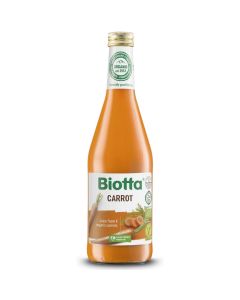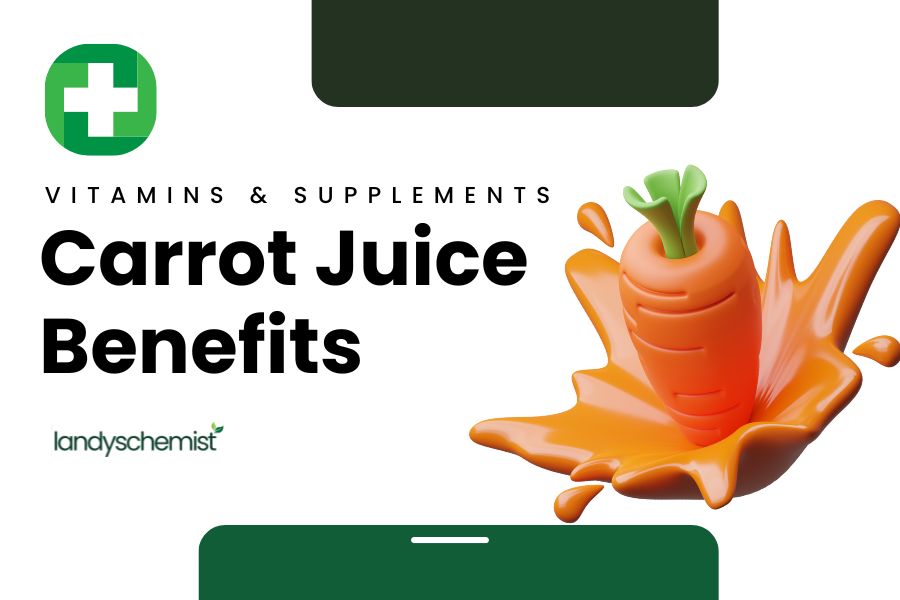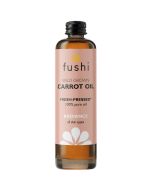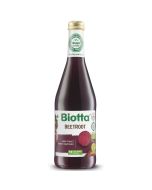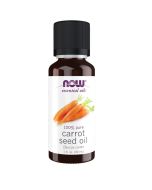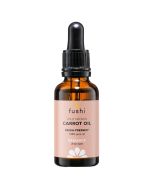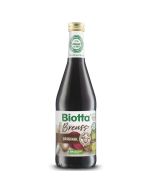
Carrot Juice benefits: 8 Evidence-Based Health Benefits
Carrot juice is packed with nutrients that support your body in many ways. It is rich in antioxidants like beta carotene, vitamins A, C, and K, as well as minerals such as potassium. Drinking carrot juice may help maintain healthy vision, support heart health, strengthen the immune system, aid digestion, and improve skin appearance. It may also play a role in regulating blood pressure and supporting liver function.
“I especially recommend carrot juice for those focused on supporting cardiovascular health, blood pressure, and skin repair. Just remember to pair juices with whole vegetables to maintain good fibre intake.” says Mitesh Desai, Nutritionist at Landys Chemist
What is carrot juice
Carrot juice is made by extracting liquid from fresh carrots, either through a juicer or by blending and straining. Unlike eating whole carrots, carrot juice provides a concentrated source of vitamins, minerals, and antioxidants in an easy-to-digest liquid form. While juicing reduces fibre content, it can enhance the availability of carotenoids such as beta carotene, which the body converts into vitamin A.
Is carrot juice good for you?
Yes, in moderation. It delivers antioxidants that help protect cells, potassium for normal blood pressure and heart health, and vitamins A and C for immune and eye support. It may also benefit skin and digestion. Pair with whole vegetables to maintain fibre intake.
How much carrot juice should you drink each day for the best results?
For most people, a small glass (around 150ml) of carrot juice a few times per week is enough to enjoy the benefits without overdoing it. Combine carrot juice with other vegetable juices, such as spinach or beetroot, to increase nutrient diversity.
Benefits of Carrot Juice
Supports eye health
Carrots are well known for their link to eyesight, and carrot juice is a concentrated source of those same nutrients. Nutrients in carrots such as: Beta carotene, lutein, and zeaxanthin, all play a role in protecting the eyes, supporting night vision, and helping to filter blue light from screens. Research shows that people with higher intakes of these nutrients are less likely to develop serious vision problems as they get older.
Promotes heart health
Studies suggest that eating more carotenoid-rich foods, like carrots, may reduce the risk of developing heart disease over time. Additionally, the antioxidants in carrots can support healthy cholesterol levels.
Strengthens the immune system.
Vitamin A supports mucous membranes and skin, key barriers against infection, while vitamin C protects immune cells from oxidative stress. Studies show that adequate vitamin A reduces infection risk, and vitamin C supplementation shortens the duration of colds.
Improves skin appearance
Beta carotene provides natural UV protection, and Vitamin C helps with collagen production. A study found that higher carotenoid intake gave skin a healthier, golden tone, while vitamin C deficiency is known to impair collagen repair.
Helps regulate blood sugar levels
Despite natural sugars, carrot juice has a relatively low glycaemic index compared to some fruit juices. Research showed that carrot polyphenols may improve insulin sensitivity, supporting healthy blood sugar balance.
Supports digestion
Although lower in fibre than raw carrots, carrot juice contributes some soluble fibre and potassium. Soluble fibre is well documented to aid bowel regularity and promote beneficial gut bacteria.
Boosts liver function
Carotenoids and antioxidants may support detoxification processes. Studies suggest beta carotene protects the liver from oxidative damage, while epidemiological studies link higher carotenoid intake with improved liver enzyme profiles.
Weight management
Carrot juice is low in calories but rich in nutrients. Research on low-energy, nutrient-dense foods shows they support satiety and weight management when part of a balanced diet.
DIY carrot juice recipe
Ingredients:
- 4–5 medium carrots
- 1 small apple (optional, for sweetness)
- 1cm piece of ginger (optional, for flavour)
- ½ lemon (optional, for freshness)
Method:
- Wash and peel the carrots.
- Add carrots (and optional apple/ginger) to a juicer.
- Squeeze in fresh lemon juice before serving.
- Drink immediately for maximum freshness.
Best Pre-made Carrot juice:
Nutrition: Biotta Carrot Juice
Per 100 ml: 28 kcal, 7 g sugar
Per small 150 ml glass: 42 kcal, 10.5 g sugar
Per 250 ml: 70 kcal, 17.5 g sugar
Tip: Homemade carrot juice nutrition will vary with carrot size and how much pulp you strain out. Biotta figures above are a reliable label reference for readers looking for exact calories and sugars per serving.
Considerations, side effects, and interactions
- Carotenemia: Drinking large amounts may cause yellow-orange skin tint due to beta carotene build-up. This is harmless and reversible.
- Fibre intake: Pair juice with whole carrots or fibre-rich foods to maintain digestive health.
Conclusion
Carrot juice is a concentrated source of vitamins, minerals, and antioxidants, best enjoyed fresh or as a small glass of cold-pressed juice. Regularly drinking it can give your body extra antioxidant support, helping with things like eye health, skin repair and keeping the heart and immune system in good shape. However, it should be consumed in moderation to avoid excess sugar and carotenemia, and it does not replace the benefits of eating whole carrots for fibre.
FAQs
Does carrot juice help you tan?
Carrot juice does not directly cause a tan, but beta carotene can give skin a slightly golden glow. It also supports skin health and may provide mild UV protection.
What is the difference between carrot juice and carrot oil?
Carrot juice is consumed as a drink for nutrition. Carrot oil, extracted from carrot seeds or infused from carrot root, is applied topically in skincare for antioxidant and moisturising properties.
How much carrot juice is safe to consume per day?
Around 150ml (a small glass) per day is generally considered safe for most adults. Excessive intake may cause carotenemia.
Sources:
- Macular Carotenoid Supplementation Improves Visual Performance, Sleep Quality, and Adverse Physical Symptoms in Those with High Screen Time Exposure - PMC
- Long-term Outcomes of Adding Lutein/Zeaxanthin and ω-3 Fatty Acids to the AREDS Supplements on Age-Related Macular Degeneration Progression: AREDS2 Report 28 - PMC
- Carotenoids Intake and Cardiovascular Prevention: A Systematic Review - PMC
- Drinking carrot juice increases total antioxidant status and decreases lipid peroxidation in adults - PMC
- Role of Vitamin A in the Immune System - PMC
- Vitamin C and Immune Function
- The Roles of Vitamin C in Skin Health - PMC
- Carotenoids and carotenoids plus vitamin E protect against ultraviolet light-induced erythema in humans - PubMed
- https://glycemicindex.com/gi-search/&?food_name=
- Polyphenols and their effects on diabetes management: A review - PMC
- Effect of dietary fiber on constipation: A meta analysis - PMC
- Nutritional Importance of Carotenoids and Their Effect on Liver Health: A Review - PMC
- Dietary energy density in the treatment of obesity: a year-long trial comparing 2 weight-loss diets
Medically Reviewed & Authored By
This article was medically reviewed by Girish Desai, Chief Pharmacist at Landys Chemist since 1982 (GPhC Reg. No. 2019217).
Written and compiled by Wiktoria Suder, Digital Marketing Coordinator at Landys Chemist and specialist in health and wellbeing content strategy.
Disclaimer: This content is grounded in research and expert pharmacy and nutrition knowledge to ensure accuracy and relevance.

